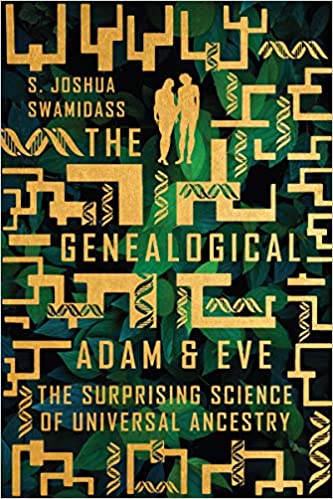Q. First of all, kudos to you for writing a very interesting and very irenic book on a topic that usually produces far more heat than light on the subject. What prompted you to write this book in particular and why did you take the approach you did?
A.
Thank you for reading my book and inviting this conversation. My primary goal, in this book, is to address the scientific questions about Adam and Eve with empathy, honesty, and rigor. Does evolution really rule out the de novo creation of Adam and Eve? Does evolution really demonstrate that we do not all descend from them? These questions are where much deep and historic conflict lies.
This book required professional courage. When I first went public, I was a professor at a secular institution, without tenure. In view of the risk, I still went public out of a growing concern of how evolutionary creationists were misrepresenting scientific findings to the Church. I also am aligned with mainstream science, including evolutionary science. From my view in science, it really looks like we share common ancestors with the great apes.
About Adam and Eve, however, evolutionary creationists overreached and made untruthful claims. In response, theology was welcomed only to accommodate, adapt, and revise. This book is a push back on their overreach.
I am pushing back on Dennis Venema’s chapters in Adam and the Genome. He recounts a journalist’s question, “how likely it is that we all descend from Adam and Eve?” Venema replied, “That would be against all the genomic evidence that we’ve assembled over the last 20 years, so not likely at all.”
This is just not true. If Adam and Eve were real people in a real past, most likely all of us descend from them.
I am pushing back on BioLogos’s insistence that “the de novo creation of Adam and Eve is not compatible with what scientists have found in God’s creation.” Aligned with this insistence, Deborah Haarsma confronted pastor Tim Keller for his confession that Adam and Eve were specially created. She still warns he “risks driving away those who might otherwise be drawn to the faith.”
This also is not true. The de novo creation of Adam and Eve is compatible with what scientists have found in God’s creation. Even if common descent is true, Adam and Eve could have been created without parents.
I am pushing back on the overreach itself, and also the resistance to correction. Haarsma still insists that Adam and Eve as “recent sole progenitors is inconsistent with scientific evidence.” This is not true either. Here, they overreach by forcing narrow scientific meanings on theological terms. As my book makes clear, depending on the theological meaning of “sole-progenitors” and “human,” Adam and Eve as recent sole-progenitors can be consistent with the scientific evidence.
In this overreach, they are not acting as secular scientists. Certainly, some understandings of Adam and Eve are in conflict with evolutionary science. Some versions, though, are not in conflict.
This is the good news my book brings. For the last 160 years, evolution has been difficult for the Church. But, with a better understanding of science, perhaps there is just not as much conflict as we once believed.













